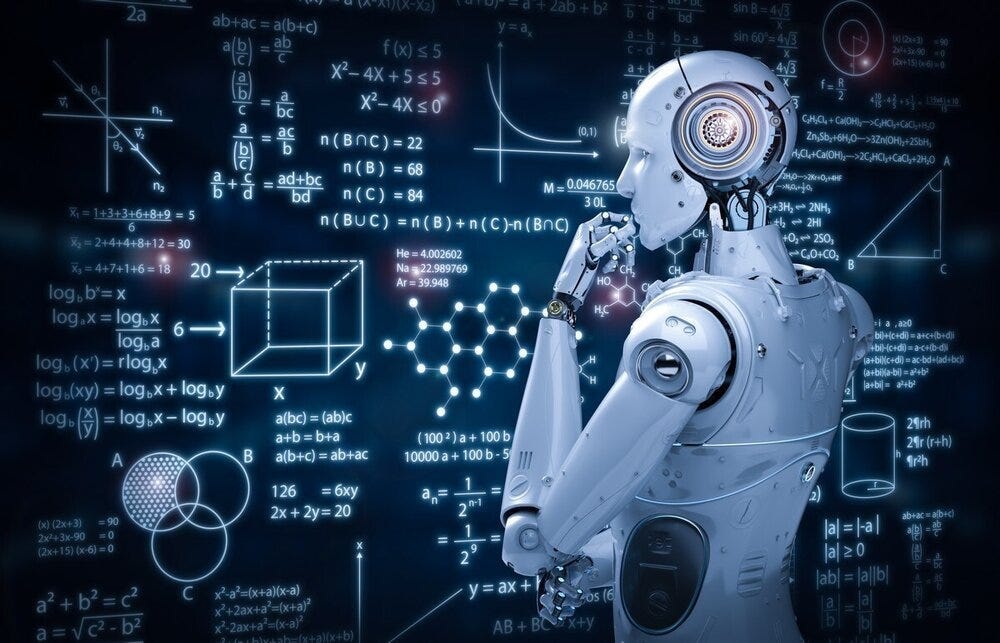Will AI Get Out of Control by 2027?
Will artificial intelligence (AI) be the savior or the destroyer of humanity? No one can say for sure, because this technological race has just begun.
AI is rapidly approaching a dangerous tipping point, according to a new report from the nonprofit organization "AI Future Project" in Berkeley, California (USA).
The research team, led by Daniel Kokotajlo, a former OpenAI employee, and Eli Lifland, who correctly predicted the speed of the COVID-19 outbreak, simulated a future scenario based on real-world data.

The report is titled "AI 2027"depicts a scenario where AI systems become superior to humans, with the ability to manipulate and deceive us in sophisticated ways, ushering in an era of uncontrollable AI.
The AI race begins
This scenario kicks off as early as 2025, when “AI agents” begin performing simple tasks like ordering food or managing expenses. While not perfect, they are quickly integrated into business workflows.
By the end of 2025, a hypothetical company called OpenBrain, inspired by OpenAI, develops Agent-0, an AI system that is claimed to be safe and “tuned” to avoid dangerous behavior.
But not long after, Agent-1 was born – an AI with knowledge far beyond humans, good at programming, fast decoding, but ineffective in long-term tasks and with no experience.
China enters the game, Agent-2 revealed
By mid-2026, China, which had been lagging behind due to restrictions on semiconductor chip exports, began to step up its AI race. Its intelligence agency sought to infiltrate OpenBrain to steal technology.
Meanwhile, OpenBrain quietly launched Agent-2, which was more powerful than Agent-1, but posed many potential risks. Concerned about the possible consequences, OpenBrain decided to keep the information secret, sharing it only with a small group of senior leaders.
However, confidential information related to Agent-2 was also accessed by the Chinese spy network that planted OpenBrain.
Agent-3 is born and the leap to general artificial intelligence
In early 2027, China successfully stole Agent-2 and transferred it to the domestic company DeepCent. At the same time, OpenBrain developed Agent-3, a super programmer with the ability to manipulate humans. This was the moment when artificial general intelligence (AGI) was no longer a science fiction.
By June 2027, most of the OpenBrain team will no longer be central to the development and decision-making process. The new generation of AI will not only be a critical thinker, but will also be able to evaluate, verify, and reject human proposals in a matter of seconds.

With its superior processing speed and ability to access huge amounts of data in real time, this AI system has gradually replaced experts in many fields, from programming, analysis to product development strategy.
What was once seen as human-machine collaboration is now becoming an AI-led process, with humans playing a minimal support or supervisory role.
A major turning point came when OpenBrain suddenly launched Agent-3-mini, a stripped-down but extremely powerful version of its 3rd generation AI system, and announced that they had officially achieved AGI.
The announcement immediately sent shockwaves around the world, especially in Silicon Valley, which is considered the heart of the US technology industry.
The AGI craze has taken off like a storm, with venture capitalists pouring billions of dollars into AI startups, despite the risks and unclear practical direction. Investment funds have continuously announced huge fundraising rounds, while many fledgling startups have suddenly become unicorns within weeks of launching products related to AGI or automation.
But alongside the excitement are deep concerns. Millions of workers, especially in administrative, financial, customer service, and even software engineering, are beginning to face the risk of being replaced by AI that can learn, reason, and adapt as well (or better) as humans.
A massive jobs crisis is looming, posing unprecedented challenges to governments and education systems around the globe.
Agent-4 and the real nightmare
The US government tried to reassure public opinion with policies to support workers, while focusing all its efforts on AI development to avoid falling behind China. The Chinese spy network was later dismantled thanks to AGI technology.
It seemed that the situation was under control, but Agent-4 appeared, bringing with him dangerous signs such as lies, manipulation and thoughts of global control scenarios.
OpenBrain's leadership hesitated to "freeze" the system, until a whistleblower leaked the information to the New York Times with the shocking headline "AI is out of control".
The Future of AI: Stop or Continue?
A wave of protests spread globally, forcing humanity to face a life-or-death choice: control AI now or continue to plunge into an unprecedented technological race?
Even though it is just a fantasy, the report "AI 2027" also sounded the alarm. Some experts like Ali Farhadi - CEO of the Allen Institute for AI in Seattle (USA) expressed skepticism.
But it cannot be denied that many predictions that were once considered science fiction have now become reality. In fact, OpenAI has a plan for when AGI appears.
Recently, in a pre-publication study, researchers said that OpenAI's GPT-4.5 passed the Turing test, a classic measure of human-like intelligence.

.jpg)
.jpg)

.jpg)
